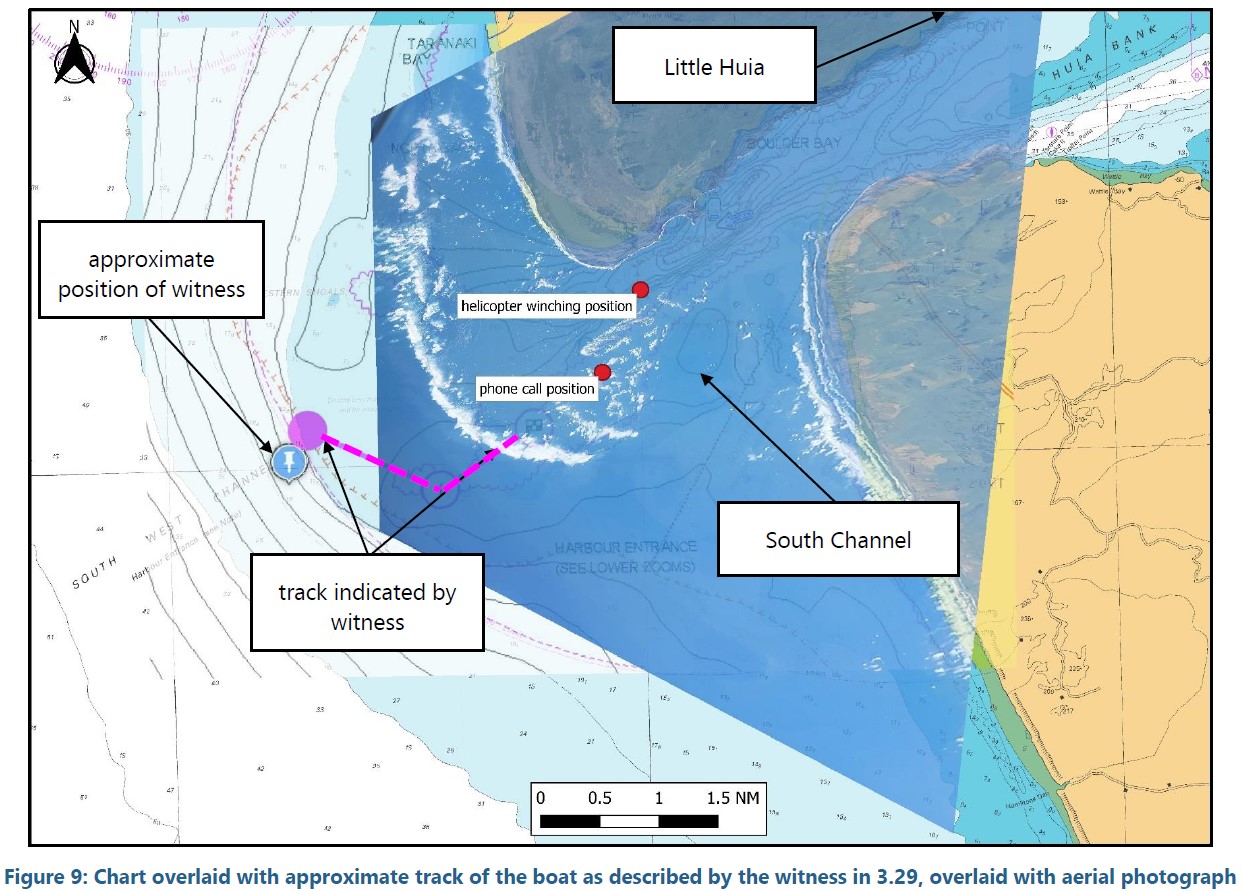
Recreational boats and their skippers should be regulated, says the Transport Accident Investigation Commission (TAIC), in its final report on the capsize of a recreational boat on the Manukau Bar on 16 October 2021, in which three of the four people on board died.
A 5.5 metre recreational power boat was returning from a fishing trip outside Manukau Harbour. While crossing the bar, a series of steep, breaking waves swamped the boat, its engine lost power, and it capsized and sank. A boat occupant called 111 and a rescue helicopter and two nearby private vessels responded promptly, recovering all four from the water. None wore lifejackets. Only one person survived.
This accident happened because the boat was taken into the hazardous waters of the bar, at risk of broaching and swamping, rather than via the safer Southern Channel.
Commission Chair Jane Meares says the Commission identified the pressing need a compulsion system under which recreational boats are built and maintained to a standard and skippered by people who have proven that they can be safe skippers.
“Right now, none of that happens; anyone can skipper a recreational boat – even with no safe boating skills and no understanding of their responsibilities for the lives of people on board,” said Ms Meares.
“For more than twelve years, the Commission has repeatedly called for a compulsion system to complement the existing education campaigns because too often the admirable educational messages fall on deaf ears.
“The ongoing reluctance by lawmakers, policy makers and regulators to implement such a system is a tacit acceptance that every year around 15 to 20 recreational boaters die as a result of their own actions.”
The Commission’s final report on this accident recommend that the Ministry of Transport consider compulsory licencing and education of skippers; and that they do more to learn about the merits of regulating recreational boats to bring New Zealand into line with international best practice.
“The changes we recommend would help reduce the likelihood of similar accidents in future.
“For example, the case of this accident, safe skippering would have meant having more food and less alcohol on board; and a better decision about the homeward route would have made the accident less likely
“Even if the accident still happened, good lifejackets worn properly would have kept their heads above water, and with less alcohol in their systems their survival chances in the water would have been better.”
